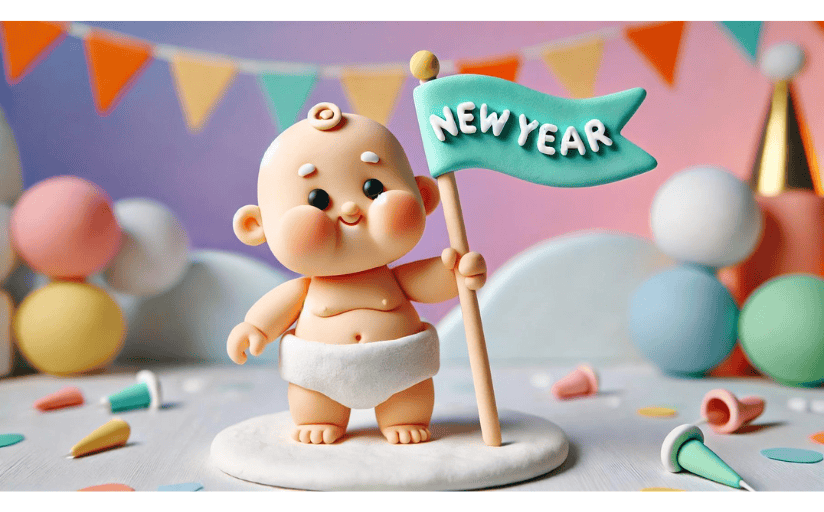Let’s take a look and see where some of the New Year’s words originated from.
Baby
Baby New Year symbolizes the birth of a new year and indicates that we can all be reborn and focus on bettering ourselves. However, baby is a late Middle English term that is the diminutive form of baban. The word is believed to imitate the way infants babble.
Champagne
Any wine that was made in Champagne, a historic northeastern province of France, is referred to as champagne. The word got its start in the 1660s, and it was adopted all over the world (as was the sparkling wine). The drinking of champagne during celebrations began in Europe’s royal courts and was regarded as a status symbol.
Countdown
You would think that the word countdown has been around for a long time, but according to the Online Etymology Dictionary, it got its start in 1953 and was used when launching rockets. It is a compound word from count (the Old French computare meaning “calculate”) and down (the Old English dune meaning “off the hill” and “downward”).
Fireworks

The word fireworks was first noted around the late 1500s and meant “pyrotechnic contrivances.” It is also a compound word from fire (the Old English fyr) and work (The Old English weorc meaning “skilled trade or craft”).
January
January originates from the Latin term Januarius mensis meaning “the month of Janus.” It is traditionally believed that the ancient Roman god Janus is the ruler of beginnings and transitions.
Kiss
Kiss is of Germanic origin (cyssan) and likely comes from the sound a kiss makes.
Midnight
Midnight is a pretty straightforward term that comes from the Old English midniht. It refers to the middle of the night, and the moment of time that is halfway between when the sun rises and sets.
New Year
The term new year was first recorded in the 1300s, but the public gathering to celebrate this holiday didn’t start until 1878 in London. New is of Germanic origin (from neowe) and means “fresh.” Year is also a Germanic word (from gēar) and means “season.”
Party
Over time, the Latin word partiri morphed into the Middle English party. However, the word was used to denote a separation of individuals, or people parted into groups. It wasn’t until 1922 that the term meant to have a good time.
Resolution
Resolution was a New Year’s word that was first used as an intention to better oneself at the New Year around 1780. However, the word was believed to have been first recorded around the late 14th century. It came from the Latin word resolvere meaning “loosen” or “release.” Let’s all resolve to release ourselves from bad habits this year!
From New Year’s Words to Complex Language
Through etymology, we can unravel the complexities of language to gain a deeper understanding of why we use the words we do. This can be a useful tool for writers that helps them instinctively comprehend a word and broadens their vocabulary as a result. Do you find etymology important or archaic? Please comment below!
Happy New Year!


Leave a Reply